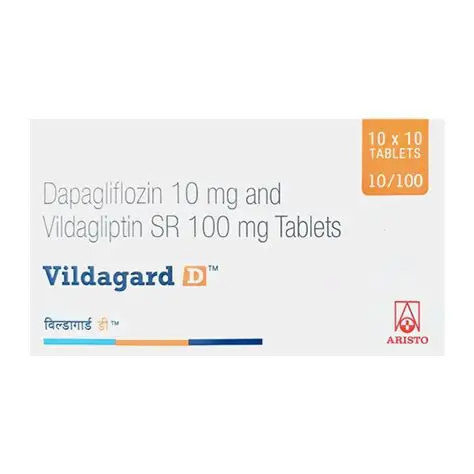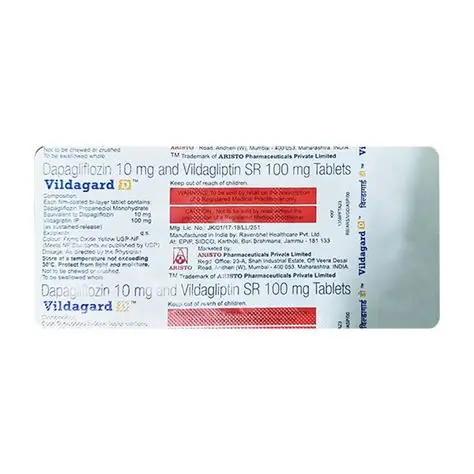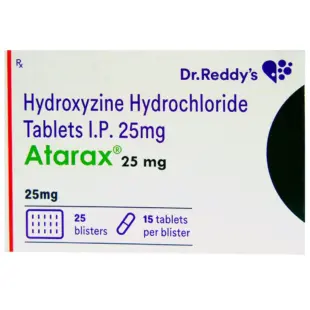- Your cart is empty
- Continue Shopping
Vildagard D 10mg/100mg Tablet is prescribed for adults with type 2 diabetes to help regulate blood sugar levels. It works best when taken along with proper diet, regular exercise, and weight management. By improving the body’s use of insulin and promoting the removal of excess sugar through urine, it helps maintain glucose balance and lowers the chances of diabetes-related complications such as kidney issues, eye damage, nerve disorders, and heart problems. Taking this medicine consistently not only helps keep sugar levels under control but also reduces the long-term risk of cardiovascular events in diabetic patients.
The medicine can be taken at any time of the day, with or without meals, though taking it at the same time daily is recommended for best results. The dosage is set by the doctor depending on the patient’s condition. Stopping the medicine suddenly without medical advice can lead to uncontrolled sugar levels and serious health complications. Alongside treatment, maintaining good personal hygiene, staying hydrated, and following healthy lifestyle habits are important to avoid side effects and support the medicine’s benefits.
Like all medicines, Vildagard D 10mg/100mg Tablet may cause some unwanted effects. The most commonly reported ones include dizziness, headache, nausea, trembling, urinary tract infections, vaginal inflammation, balanitis, rashes, back pain, and tiredness. Some individuals may also experience frequent urination or low blood sugar episodes. Most of these are temporary and settle as the body adapts to the treatment. Drinking plenty of fluids reduces the risk of dehydration, and good genital hygiene helps prevent fungal infections that may occur during therapy. If side effects persist or cause discomfort, a doctor’s advice should be sought promptly.
The combination of two medicines in Vildagard D Tablet—dapagliflozin and vildagliptin—ensures effective sugar control. Dapagliflozin acts by removing extra glucose through urine, while vildagliptin enhances insulin release and lowers the production of glucose in the liver by reducing levels of glucagon. Together, these actions improve blood sugar management throughout the day.
Patients should inform their doctor if they have kidney or liver problems, frequent urinary tract infections, or if they are taking diuretics. Women who are pregnant or breastfeeding should consult a healthcare professional before starting this medicine. Alcohol consumption should be limited as it may worsen side effects or interfere with sugar control. Regular blood sugar monitoring is strongly recommended while on treatment.
In case a dose is missed, it should be taken as soon as remembered. However, if it is already close to the next scheduled dose, the missed dose should be skipped and the regular dosing pattern continued without doubling up. Long-term adherence to the prescribed schedule will ensure the best protection against diabetes complications and help maintain a healthier lifestyle.
















Reviews
There are no reviews yet.